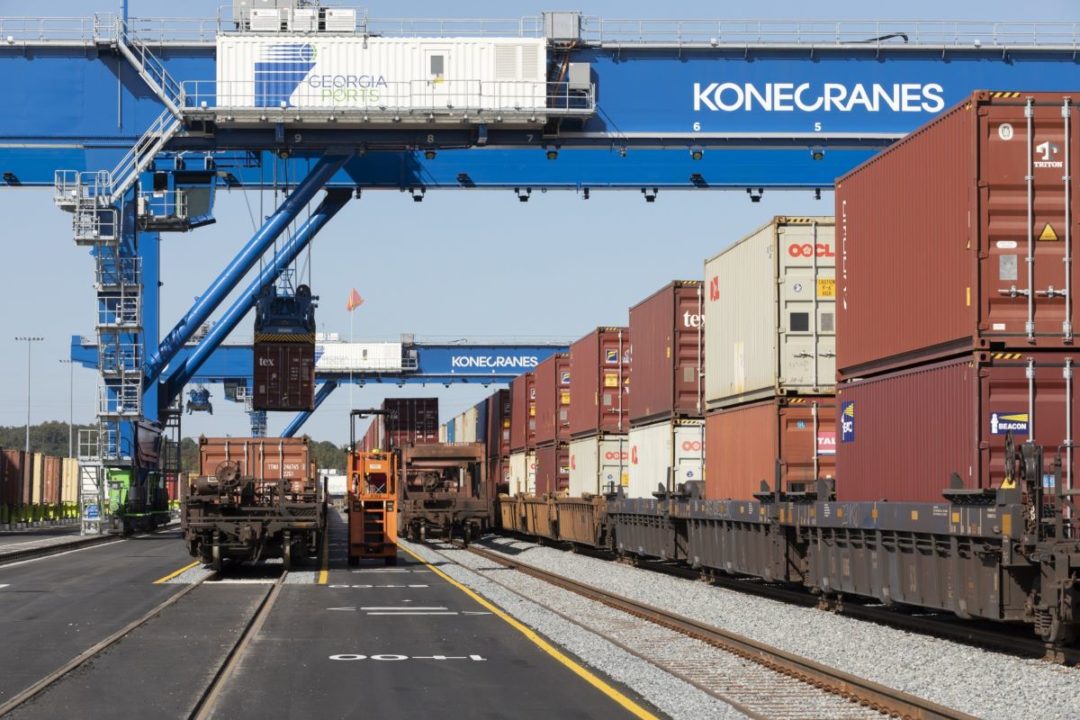
Home » White House Pushes Railroads, Unions to Avert Crippling Strike
White House Pushes Railroads, Unions to Avert Crippling Strike

September 13, 2022
The White House urged labor unions and freight-rail operators to come to an agreement in contract talks, with mounting concern that a strike as soon as Sept. 16 could damage the U.S. economy and Democrats’ midterm election prospects.
Labor Secretary Marty Walsh on Sept. 11 again asked the parties to reach a resolution, the Department of Labor said in a statement Sept. 12. Walsh’s efforts follow dozens of calls from Cabinet and administration officials to the involved parties, it said. The labor chief is also postponing a trip to Ireland to deal with the impasse, a department official said.
The administration has made clear that a shutdown of the freight-rail system is an unacceptable outcome for the economy, and urged all parties to work to avoid that, according to a White House official. The National Economic Council has held multiple meetings about the issue, and President Joe Biden — who has been briefed on the matter — is closely tracking the work of Cabinet officials and economic advisers, the official said.
Freight railroads and labor unions worked through the weekend to hammer out a new contract to avoid a strike that could snarl supply chains, disrupt agricultural deliveries and cost the U.S. economy more than $2 billion a day.
A strike also would carry political risk for Biden and his fellow Democrats, whose efforts to hang on to their House and Senate majorities in the Nov. 8 elections have been boosted by a string of legislative victories and improving economic news. Supply-chain disruptions less than two months before voters go to the polls could hurt Democrats and put Biden — who has pledged to be the most pro-union president in history — in a bind.
While 10 of 12 railroad workers’ unions have struck new labor deals, the two holdouts — the Brotherhood of Locomotive Engineers and Trainmen and the International Association of Sheet Metal Air, Rail, and Transportation Workers — account for more than 90,000 rail employees.
Railroads have advised customers of some potential service disruptions starting on Sept. 12 if talks don’t progress ahead of a potential walkout on Sept. 17. Six Class I freight railroads will begin to take steps to “manage and secure” shipments of some hazardous or sensitive materials starting Sept. 12, the Association of American Railroads, a trade group, said in a statement.
A work stoppage also could hamper food shipments and would come a particularly perilous time, said Brooke Appleton, vice president of public policy at the National Corn Growers Association.
“Rail is an essential piece of the agricultural supply chain, particularly as we approach harvest season, so any disruption to rail services would have a negative and lasting impact on our growers,” Appleton said via email. “Given what is at stake for the agricultural community and other sectors of the economy, we hope all parties will come to an agreement.”
Emergency Board
Railroads and workers have faced years of challenging negotiations, which began in January 2020, shortly after the labor contract froze at 2019 levels. After the National Mediation Board failed to carve out an agreement this summer, the Biden administration’s Presidential Emergency Board recommended a 24% compounded wage hike by 2024 and $5,000 in bonuses, including some retroactive elements. The AAR said such a wage gain would be the biggest in at least 40 years.
The U.S. Chamber of Commerce on Sept. 12 urged Congress to take immediate action by implementing the Presidential Emergency Board’s recommendations if the railroads and unions are unable to come to a voluntary agreement.
“A national rail strike would be an economic disaster — freezing the flow of goods, emptying shelves, shuttering workplaces, and raising prices for families and businesses alike, but that is exactly what is likely to happen in less than four days,” chamber President Suzanne Clark said in a statement.
RELATED CONTENT
RELATED VIDEOS
Subscribe to our Daily Newsletter!
Timely, incisive articles delivered directly to your inbox.
Popular Stories

2024 Supply Chain Management Resource Guide: There's Only One Way Off a Burning Platform
VIEW THE LATEST ISSUECase Studies
-
Recycled Tagging Fasteners: Small Changes Make a Big Impact
-

Enhancing High-Value Electronics Shipment Security with Tive's Real-Time Tracking
-

Moving Robots Site-to-Site
-
JLL Finds Perfect Warehouse Location, Leading to $15M Grant for Startup
-
Robots Speed Fulfillment to Help Apparel Company Scale for Growth



